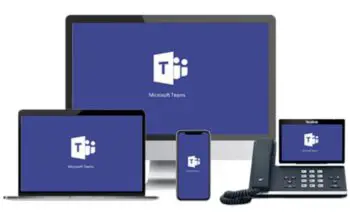New blockchain, a new revenue stream? The constantly evolving technology landscape often throws up opportunities like these. Among the newest and most potent of these opportunities is Solidity, a programming language specifically for creating smart contracts on the Ethereum platform.
If you’re looking to capitalize on this promising avenue, you’ll likely be wondering how to find Solidity developers who can help you harness this potential. But worry not! This article aims to guide you through the process, illuminating the best strategies to hire a Solidity developer who aligns with your goals and adds value to your team.
Which skills to look for when you hire a Solidity developer?
While considering a Solidity developer for hire, it’s crucial to identify the key skills they should possess. These skills go beyond just a cursory understanding of the programming language itself. Let’s explore the important competencies you should seek in your prospective Solidity developers:
Understanding of Ethereum
Given that Solidity is primarily used for Ethereum-based smart contracts, a profound understanding of Ethereum is indispensable. This includes knowledge about its functionality, principles, and its underlying blockchain technology.
Proficiency in Solidity
The eponymous language proficiency is non-negotiable. Prospective developers should be adept at creating smart contracts in Solidity, with a keen eye for any potential security issues.
Familiarity with Other Programming Languages
While Solidity is the focus, having a grasp of other languages, such as JavaScript, Python, or C++, can be beneficial. This enables the developer to work flexibly across various aspects of a project.
Testing and Debugging Skills
Like any software, smart contracts created in Solidity may have bugs. Thus, it’s important that your developer can conduct thorough testing and debugging to ensure the code’s robustness and reliability.
Where to find Solidity developers for hire?
Now that we’ve covered the essential skills to look for, the next conundrum is where to find a Solidity developer. As this programming language is fairly new, it might seem like a daunting task to find qualified individuals. But don’t fret; the current time offers ample platforms to find exactly the talent you need. Here are some places to start your search:
- Freelance Platforms: Websites like Upwork and Toptal are a treasure trove for finding specialized talent. Simply post your project requirements and budget, and you’ll likely be inundated with proposals from freelance Solidity developers.
- LinkedIn: The world’s largest professional network is also a viable option. By using the advanced search feature or posting a job listing, you can attract a range of professionals, from entry-level developers to seasoned experts in Solidity.
- Job Boards: Traditional job boards like Indeed and Glassdoor shouldn’t be overlooked. Posting on these sites can attract a plethora of applications. Plus, you’ll have the benefit of viewing resumes and cover letters, providing more insight into each candidate.
- Dedicated places like GitHub: As a hub for developers, GitHub is a fantastic place to find Solidity developers. You can explore public repositories to find developers who have worked on Solidity projects or use the platform’s job board to post your own listings.
The million-dollar question: In-House vs. Outsourced developers
The decision to hire in-house or outsource is, indeed, a million-dollar question that organizations grapple with. Both models have their merits and demerits, and it all comes down to what you prefer.
An in-house team costs more for sure, given the overheads associated with full-time employees. However, the advantages include direct oversight, better communication, and deeper integration with your organization’s culture and objectives.
On the other hand, outsourcing, whether to freelancers or software development agencies, offers significant cost savings. It can also provide access to a larger talent pool and facilitate speedier project execution. But this comes with its own challenges, including potential communication barriers, quality control issues, and timezone differences.
The crucial factor here is to carefully assess your project’s needs, budget, and timeline. Also, consider how much direct control and involvement you want in the development process. Weigh these factors against the pros and cons of both models, and you’ll be well on your way to making an informed decision.
Final words
Cherry-picking the talent pool to hire a Solidity developer can seem daunting, given the relative novelty of this programming language. But with the right approach, you can identify and attract talented individuals who will add immense value to your projects and, ultimately, your bottom line.






